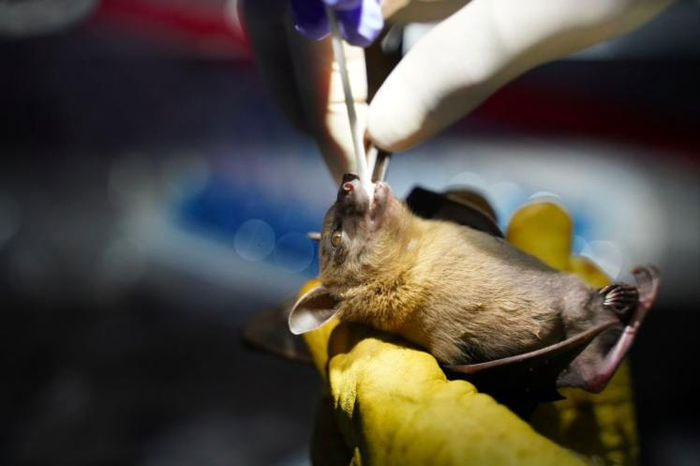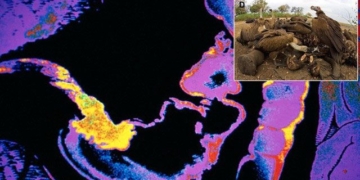Researchers are collecting bat samples in northern Cambodia to gain a better understanding of the pandemic caused by the coronavirus. They recently returned to the area where a similar virus was found in animals a decade ago.
Two samples of horseshoe bats were collected in 2010 in Stung Treng Province, which borders Laos, and are preserved at the Pasteur Institute of Cambodia (IPC) in Phnom Penh.

Cambodian researchers collect throat swab samples from bats to search for the coronavirus. (Photo: Reuters).
Tests conducted last year showed that the virus from these two bat samples is closely related to the coronavirus responsible for the Covid-19 pandemic, which has claimed 4.6 million lives worldwide.
A research team of eight members from IPC has been collecting bat samples and classifying them. Similar studies are being conducted in the Philippines.
“We hope the results from this research can help the world understand Covid-19 better,” field coordinator Thavry Hoem told Reuters while using a bat net.
Host animals like bats often show no symptoms of disease but can have serious consequences if they transmit the virus to humans or other animals.
Dr. Veasna Duong, the virology director at IPC, stated that the institute has undertaken four such trips in the past two years, hoping to find clues about the origin and evolution of the viruses that reside in bats.
“We want to find out if the virus is still here and understand how it has evolved,” he said.
Deadly viruses originating from bats include Ebola and those that cause SARS and MERS. However, Dr. Veasna Duong believes that humans are to blame for the devastating consequences of Covid-19, due to their interference and destruction of natural habitats.

















































